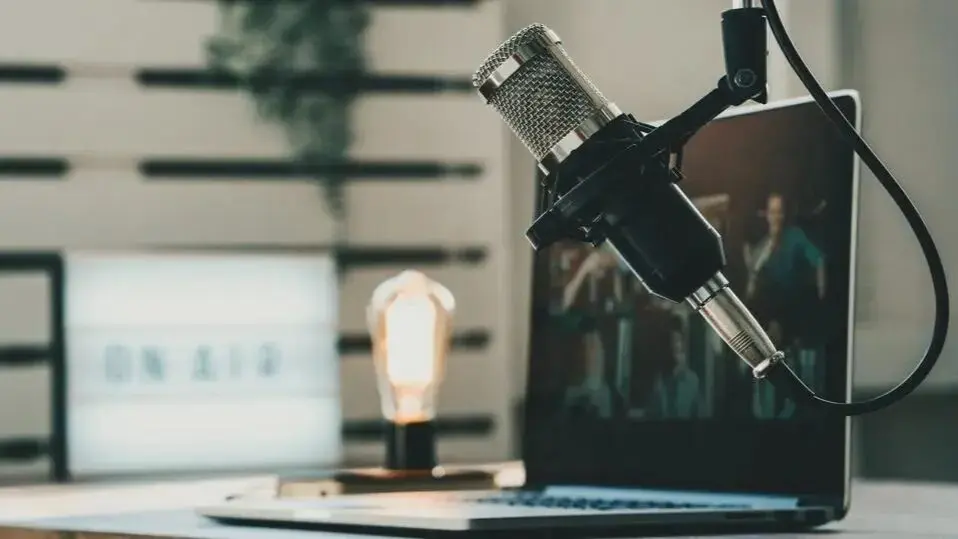Imagine one of the most beloved talk show hosts from your country – someone who interviewed generations of celebrities and became a cultural icon through their unique style and warmth. Now imagine that the host has been recreated using artificial intelligence, their voice and mannerisms perfectly replicated by computers. This is exactly what’s happening in the UK with legendary interviewer Michael Parkinson, whose AI-powered digital twin is now conducting celebrity interviews despite his passing in 2023. This groundbreaking development raises profound questions about the future of human connection in broadcasting.
The Human Touch In A Digital Age
Having recently interviewed BCG’s AI host, GENE, on my own podcast, I’ve experienced firsthand how these AIs can create very engaging conversations. GENE serves as an effective co-host, complementing human presenters while maintaining transparency about its artificial nature through its intentionally robotic-sounding voice. As BCG’s Paul Michelman explains, “We think it’s very important to be fully clear when we’re using technology. And two, to really avoid anthropomorphizing.” This approach demonstrates how AI can enhance broadcasting without attempting to replace the irreplaceable human element.
When Technology Goes Too Far
However, I feel that the launch of Virtually Parkinson crosses a concerning threshold. While is is technically impressive, recreating a beloved broadcaster’s voice and interviewing style after he passed away feels like a violation of the authentic human connections that made Parkinson’s interviews so special. His famous conversations with Muhammad Ali, Billy Connolly, and countless others resonated because of their genuine human chemistry – something that cannot be truly replicated by algorithms, no matter how sophisticated.
Mike Parkinson, Sir Michael’s son, describes the AI recreation as “exactly how he delivered his questions – even the pacing is the same. It stills people when they hear it”. This very perfection, while technically remarkable, raises concerns about authenticity in broadcasting.
The Economics Of Digital Hosts
The financial appeal of AI hosts is undeniable. They can work tirelessly and require no salary. But this efficiency comes at a cost to the broadcasting ecosystem. Jason Saldanha, chief operating officer at PRX, warns that “flooding the market with content to get the lowest level of engagement” is not a “long-term strategy.” He emphasizes that the real power of podcasts lies in “the host-audience relationship,” and the most successful shows have a “one-to-one relationship with their audiences.”
Industry Perspectives And Ethical Considerations
BCG’s experiences with GENE offer valuable insights into responsible AI deployment. Vlad Lukic, Managing Director and Senior Partner at BCG notes that AI “gets into the crux of our business… and it’s going to be fundamental to the toolkit and skills that we need to have”. However, Deep Fusion Films’ Ben Field, creators of the Virtually Parkinson AI, emphasizes the importance of ethical considerations, stating they are “committed to working only with the agreement of a subject’s estate and with the involvement of the relatives.”
Finding The Right Balance
It is importnat to make a clear distinction between using AI as a tool to enhance human-led content and attempting to replace human presenters entirely. When GENE co-hosts podcasts, it adds value while remaining transparently artificial. This approach preserves the authenticity of broadcasting while embracing technological innovation. The key lies in maintaining this balance – using AI to augment rather than replace the human element that gives broadcasting its soul.
The Future Of Human Connection
As these technologies advance, we must ask ourselves what we value most in broadcasting. Is it perfect delivery and unlimited content production, or is it the authentic human connections that have defined great broadcasting for generations? While AI hosts represent an impressive technological achievement, they should enhance rather than replace the human voices that make broadcasting truly meaningful.
The true power of broadcasting doesn’t lie in technical perfection but in those wonderfully imperfect moments of genuine human interaction – the unexpected laughs, the emotional revelations, the spontaneous connections that no algorithm can predict or replicate. When I look to the future of broadcasting, I see AI playing a vital supporting role, but never replacing the raw authenticity of human conversation. Perhaps the greatest irony is that in our quest to create perfect digital hosts, we risk losing the very imperfections that make broadcasting profoundly human. The challenge ahead isn’t just technological – it’s about preserving the soul of communication in an increasingly digital world.




